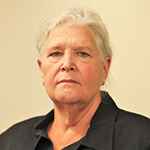QC-based IMEG offers engineering expertise to Times Square’s ball drop
QCBJ News Staff

John Deere is increasingly making the sustainable revitalization of diverse neighborhoods including Rock Island’s West End and Moline’s Floreciente neighborhood its business.
And the Moline-based global equipment manufacturer is not alone in supporting both Floreciente’s successful Mercado on Fifth story and the one now being written in Rock Island’s West End.
Among them is Quad Cities Chamber CEO LaDrina Wilson. “The…

Get immediate, unlimited access to all subscriber content and much more.
Learn more in our subscriber FAQ.
Do you want to read and share this article without a paywall?
